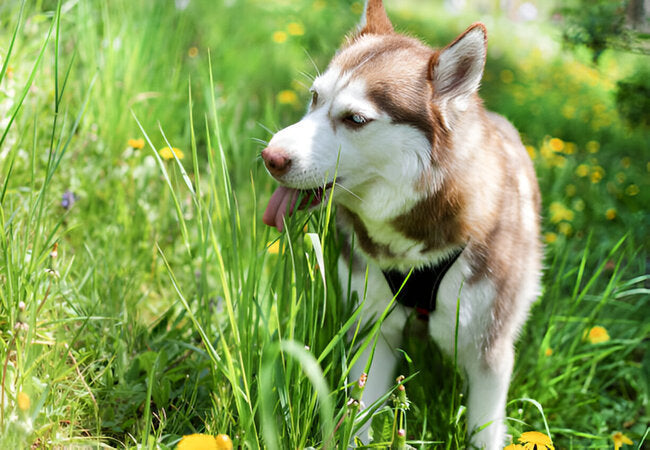2025 Vet Insight: Why Do Dogs Eat Grass? 🐕🌱

In this article
2025 Vet Insight: Why Do Dogs Eat Grass? Understanding Canine Grazing 🌱🐶
By Dr. Duncan Houston BVSc
Hello! I’m Dr Duncan Houston BVSc, veterinarian and founder of Ask A Vet. If you’ve caught your dog munching on grass and wondered why, don’t worry, you’re not alone. While the behavior may seem odd, it’s surprisingly common and usually harmless. Let’s explore the science and psychology behind this green-snacking habit, when it’s normal, and when it signals something more. 😊
1. Is It Normal for Dogs to Eat Grass?
Yes! Grass eating—known as pica when it involves non-food items—is seen in 70–80% of healthy dogs at some point. Most are not sick before or after. The American Veterinary Medical Association and multiple studies confirm it’s a mostly benign behavior.
2. Reasons Why Dogs Eat Grass 🌿
2.1 Instinctual Foraging Behavior 🧬
Dogs descend from omnivorous ancestors—wolves and wild canines—which often consume plant material from prey intestines. Some grass-eating may stem from instinctual scavenging. Studies have shown that 11–47% of wolves occasionally eat grass or berries.
2.2 Digestive Regulation & Fiber
Grass provides fiber, which helps dogs regulate digestion and stool quality. In one case, a dog who ate grass daily stopped once fed a fiber-enriched diet—indicating a nutritional motive.
2.3 Mild Gastrointestinal Discomfort 💨
Some dogs eat grass when feeling nauseated or bloated. However, fewer than 10% show signs of illness before grazing, and only ~25% vomit after, suggesting that grass isn’t always eaten to induce vomiting.
2.4 Boredom or Anxiety 🐾
Dogs left alone or under-stimulated may chew grass for mental stimulation. It can act like a “stress chew.” This is especially common in high-energy breeds or during seasonal changes.
2.5 Taste, Texture & Exploration
Young dogs may eat grass simply because it’s new, fresh, and fun, particularly in spring. The texture, smell, and taste are stimulating to curious noses and tongues.
3. When Should You Worry? ⚠️
- Frequent vomiting after eating grass
- Persistent diarrhea or lethargy
- Weight loss or reduced appetite
- Obsessive grazing—daily or hourly
These signs could suggest GI upset, inflammatory bowel disease, parasites, or anxiety-related disorders. A visit to your vet is essential to rule out systemic causes.
4. Hidden Dangers of Grass Eating
Not all grass is created equal. Risks include:
- Herbicides & pesticides: Toxic residues from lawn chemicals
- Parasites: Roundworm or hookworm larvae in contaminated soil
- Foxtails or awns: Sharp seeds that lodge in gums or the throat
Always supervise grass-eating or restrict it to untreated areas.
5. Healthy Alternatives & Enrichment ✅
5.1 Nutritional Support
- Introduce high-fiber diets with pumpkin, canned green beans, or bran
- Use vet-formulated digestive supplements like those from Woopf
5.2 Safe Grazing Options
- Grow wheatgrass or oat grass indoors in pet-safe pots
- Provide chew toys or food puzzles to redirect boredom grazing
5.3 Behavioral Enrichment
- More walks, games, and interactive time
- Use training cues like “Leave it” to guide behavior
- Consider the Ask A Vet app for tailored behavior plans
6. Grass Eating in Puppies
Puppies explore with their mouths. Grass chewing is normal exploration, but monitor for vomiting, diarrhea, or parasites. Discourage with redirection and chew-safe toys from Purrz.
7. FAQs on Grass Eating ❓
- Q: Should I let my dog eat grass?
- Occasionally, yes—if untreated and your dog isn’t vomiting or obsessively grazing. Offer safe alternatives when possible.
- Q: Is grass eating a sign of a dietary deficiency?
- Sometim






